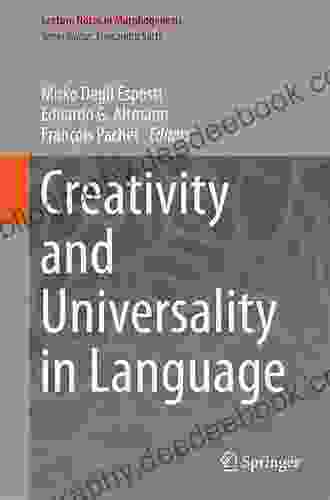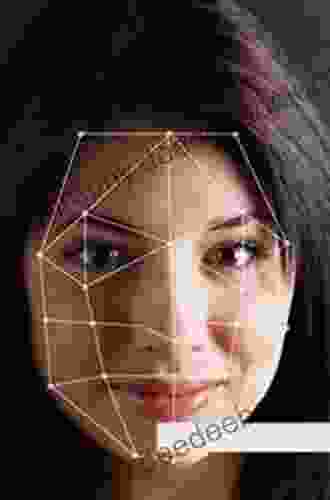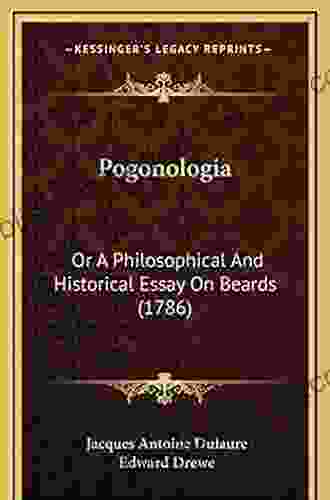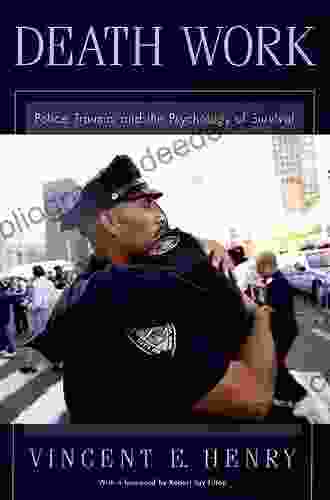Creativity and Universality in Language: Lecture Notes in Morphogenesis

Language is one of the most defining characteristics of human beings. It allows us to communicate with each other, share ideas, and express ourselves creatively. However, language is not simply a fixed system of rules and conventions. It is a dynamic and ever-evolving phenomenon, constantly adapting to the needs of its speakers.
4.4 out of 5
| Language | : | English |
| File size | : | 6258 KB |
| Text-to-Speech | : | Enabled |
| Enhanced typesetting | : | Enabled |
| Word Wise | : | Enabled |
| Print length | : | 220 pages |
| Screen Reader | : | Supported |
In this article, we will explore the relationship between creativity and universality in language. We will examine how language evolves and adapts to meet the needs of its speakers, while also exhibiting remarkable universals across different languages. We will draw on insights from the field of morphogenesis to understand how language can be both creative and universal.
Creativity in Language
Language is a creative medium. It allows us to express ourselves in an infinite number of ways. We can create new words, phrases, and sentences to communicate our thoughts and ideas. We can also use language to create works of art, such as poetry, plays, and novels.
The creativity of language is rooted in its fundamental structure. Language is a system of symbols that can be combined in an infinite number of ways to create meaning. This allows us to express ourselves in a way that is both precise and creative.
For example, the English language has a vocabulary of over 1 million words. This gives us a vast array of choices when we want to communicate our thoughts and ideas. We can use simple words to convey basic messages, or we can use more complex words to express more nuanced ideas. We can also combine words in new and creative ways to create new meanings.
The creativity of language is also evident in the way that it evolves. Language is constantly changing and adapting to the needs of its speakers. New words are added to the vocabulary to reflect new technologies, new ideas, and new social norms. Old words change their meaning over time to reflect the changing world around us.
The evolution of language is a testament to its creativity. Language is a living, breathing thing that is constantly adapting to the needs of its speakers. It is a medium that allows us to express ourselves in an infinite number of ways.
Universality in Language
Despite the creativity of language, there are also striking universals across different languages. All languages have a system of grammar that governs the way that words are combined to form sentences. All languages have a system of phonology that governs the way that words are pronounced. And all languages have a system of semantics that governs the way that words are interpreted.
These universals in language suggest that there are certain fundamental principles that underlie all human language. These principles may be rooted in the human brain, or they may be the result of the social and cultural evolution of language.
One of the most striking universals in language is the existence of grammatical categories. All languages have a way of distinguishing between nouns, verbs, adjectives, and other parts of speech. This suggests that there is a fundamental cognitive need for us to categorize the world around us in a particular way.
Another universal in language is the existence of phonological rules. All languages have rules that govern the way that sounds are combined to form words. These rules may vary from language to language, but they all serve the same basic purpose: to make it possible for us to produce and understand speech.
The universals in language are evidence of the fact that language is a fundamental part of human cognition. Language is not simply a social convention. It is a biological and cognitive phenomenon that is rooted in the human brain.
The Relationship Between Creativity and Universality
The relationship between creativity and universality in language is complex and multifaceted. On the one hand, language is a creative medium that allows us to express ourselves in an infinite number of ways. On the other hand, language is also a universal phenomenon that exhibits remarkable universals across different languages.
How can we reconcile these two seemingly contradictory aspects of language?
One way to think about this relationship is to see creativity and universality as two sides of the same coin. Creativity is the ability to produce new and original ideas. Universality is the ability to share these ideas with others. Language allows us to do both of these things.
Language is a creative medium because it allows us to express ourselves in an infinite number of ways. We can use language to create new words, phrases, and sentences to communicate our thoughts and ideas. We can also use language to create works of art, such as poetry, plays, and novels.
Language is a universal phenomenon because it allows us to share our ideas with others. All languages have a system of grammar that governs the way that words are combined to form sentences. This allows us to understand each other, even if we speak different languages.
The relationship between creativity and universality in language is essential for human communication. Language allows us to express our thoughts and ideas in a way that is both creative and universal. This allows us to share our experiences with others, learn from each other, and build a common understanding of the world around us.
Creativity and universality are two of the most fundamental aspects of language. Creativity allows us to express ourselves in an infinite number of ways. Universality allows us to share our ideas with others. Language is a unique and powerful tool that allows us to do both of these things.
The relationship between creativity and universality in language is complex and multifaceted. However, it is this relationship that makes language such a powerful tool for human communication. Language allows us to express our thoughts and ideas in a way that is both creative and universal. This allows us to share our experiences with others, learn from each other, and build a common understanding of the world around us.
4.4 out of 5
| Language | : | English |
| File size | : | 6258 KB |
| Text-to-Speech | : | Enabled |
| Enhanced typesetting | : | Enabled |
| Word Wise | : | Enabled |
| Print length | : | 220 pages |
| Screen Reader | : | Supported |
Do you want to contribute by writing guest posts on this blog?
Please contact us and send us a resume of previous articles that you have written.
 Novel
Novel Page
Page Chapter
Chapter Text
Text Story
Story Genre
Genre Reader
Reader E-book
E-book Magazine
Magazine Paragraph
Paragraph Bookmark
Bookmark Shelf
Shelf Glossary
Glossary Bibliography
Bibliography Foreword
Foreword Annotation
Annotation Footnote
Footnote Manuscript
Manuscript Tome
Tome Classics
Classics Library card
Library card Autobiography
Autobiography Memoir
Memoir Reference
Reference Thesaurus
Thesaurus Narrator
Narrator Resolution
Resolution Catalog
Catalog Borrowing
Borrowing Stacks
Stacks Archives
Archives Study
Study Rare Books
Rare Books Special Collections
Special Collections Literacy
Literacy Thesis
Thesis Dissertation
Dissertation Storytelling
Storytelling Awards
Awards Textbooks
Textbooks John Brenkman
John Brenkman William Carlos Williams
William Carlos Williams Rebecca Sillence
Rebecca Sillence Ada Petrova
Ada Petrova Jan Foster
Jan Foster Patricia L Woodard
Patricia L Woodard Jarred Capellman
Jarred Capellman Lucas Schmidt
Lucas Schmidt Karen Sandler
Karen Sandler Lisa Fortini Campbell
Lisa Fortini Campbell Raymond Giovanni Ramos Rosario
Raymond Giovanni Ramos Rosario Martin Zucker
Martin Zucker Laurence Dahners
Laurence Dahners Elizabeth Robins Pennell
Elizabeth Robins Pennell Miss Jazzie
Miss Jazzie Bhaskar Sunkara
Bhaskar Sunkara Margaret Wade Campbell Deland
Margaret Wade Campbell Deland Elvine Robert
Elvine Robert Sheryl Browne
Sheryl Browne Shirley Rousseau Murphy
Shirley Rousseau Murphy
Light bulbAdvertise smarter! Our strategic ad space ensures maximum exposure. Reserve your spot today!

 Mario Vargas LlosaMusic Late and Soon by Robyn Sarah: A Journey Through Time, Memory, and the...
Mario Vargas LlosaMusic Late and Soon by Robyn Sarah: A Journey Through Time, Memory, and the... Stuart BlairFollow ·2.5k
Stuart BlairFollow ·2.5k Jayson PowellFollow ·15.1k
Jayson PowellFollow ·15.1k Liam WardFollow ·10k
Liam WardFollow ·10k Jeffrey HayesFollow ·12k
Jeffrey HayesFollow ·12k Cooper BellFollow ·17.3k
Cooper BellFollow ·17.3k Federico García LorcaFollow ·17.7k
Federico García LorcaFollow ·17.7k Finn CoxFollow ·8.3k
Finn CoxFollow ·8.3k Patrick HayesFollow ·18.1k
Patrick HayesFollow ·18.1k

 Braden Ward
Braden WardFeminism's Forgotten Fight: The Ongoing Battle for...
The feminist movement has historically...

 Julio Cortázar
Julio CortázarBlue Heaven Black Night: A Literary Journey Through Love,...
In the realm of...
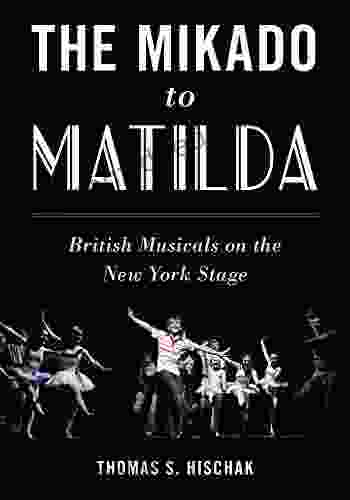
 Eddie Bell
Eddie BellA Journey Through Time: Exploring the Enchanting World of...
The vibrant tapestry of New...
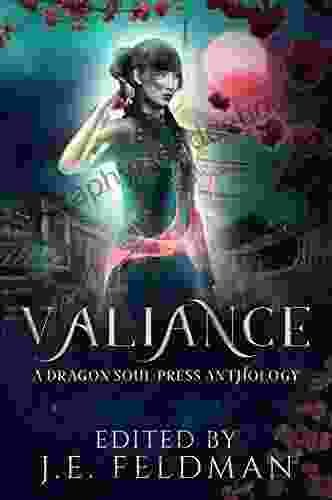
 Lawrence Bell
Lawrence BellValiance Dragon Soul Press Anthology: A Literary Odyssey...
Step into a realm where...

 Aron Cox
Aron CoxEmbark on a Creative Odyssey with Jean Leinhauser's "101...
Unveil a Kaleidoscope of...
4.4 out of 5
| Language | : | English |
| File size | : | 6258 KB |
| Text-to-Speech | : | Enabled |
| Enhanced typesetting | : | Enabled |
| Word Wise | : | Enabled |
| Print length | : | 220 pages |
| Screen Reader | : | Supported |


